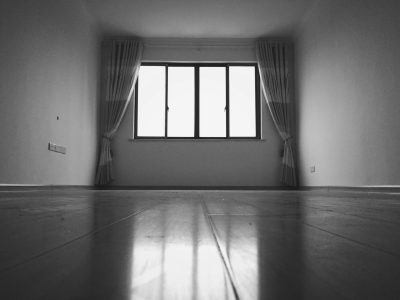Property valuation is often overlooked as one of the key pillars of the real estate sector. In many respects, this is not wholly surprising; the process of assessing the market value of a property at a given time can, to the untrained eye, seem like a relatively straightforward process. The reality is very different.
As someone who has worked in the industry for over two decades, I have been fortunate enough to witness the transformation of the property valuation process. Over recent years, buyers and sellers have become able to receive an approximate valuation of a property by inputting just a handful of details into one of the many online property listing sites.
While no doubt useful in giving an approximation, these platforms are by no means accurate. Ask any fully trained property valuator about the facts that inform their assessments, and they will provide a long, thorough list of considerations, some less obvious than others.
Sales comparisons, income capitalisation, land value and building costs can be assessed as part of an accurate valuation. However, they must also carefully consider broader social and economic trends, which are extremely difficult to ascertain via a quick online valuation.
This is the reason why qualifications through bodies such as the Royal Institution of Chartered Surveyors (RICS) are extremely important for professional valuators. And this point is more relevant than ever in 2020, given the way COVID-19 has impacted the real estate sector and, in particular, the art and science of property valuations.
Turning to online solutions
As with almost every industry, the property sector has seen an increased reliance on digital solutions this year. This is certainly true for surveyors; between April and May 2020, Zoopla recorded a 90% rise in the number of virtual property valuations completed by agents.
The prospect of a valuation being undertaken via a video platform such as Zoom is no doubt appealing. The owner can give a real-time tour of the property, and this virtual inspection can be complemented by additional research by the valuator, such as assessing other recent sales of comparable properties in the same area.
Virtual valuations have been vital in keeping the property market ticking along throughout the COVID-19 pandemic. Houses and flats could be listed, mortgages could be issued, and transactions could be completed despite the challenges posed by social distancing; without virtual valuations, this would not have been possible, at least during the stricter lockdown periods.
A case of convenience over standards?
Necessity dictated the change. But whether virtual valuations become part of the ‘new normal’ comes down to their reliability. Therefore, the key consideration here is whether video calls can provide the same high level of service as a physical inspection.
There are drawbacks. It goes without saying that viewing a property virtually is different to physically inspecting one – poor camera angles, video quality or lighting might result in potential issues being overlooked. There is also the chance of the camera operator avoiding parts of the property they do not want the valuer to see.
Nonetheless, we should not forget that much of the valuation process remains accessible regardless of the virtual tour of the property. From the exact square footage through to sales comparisons and market trend analysis, a surveyor gains much of what they need from these figures, which they can already access remotely.
That is why there is a strong case for putting faith in virtual valuations. They are a viable option, and as demonstrated in recent months, a creative solution when faced with social distancing measures that prevent access to a property.
Buyer demands are changing
Just as COVID-19 has changed the property valuation process, so too has it transformed our general attitude to real estate. And the sudden rise of remote working has been a key factor in this.
Millions of Britons have been working from home as a consequence of the pandemic. What’s more, strict social distancing measures have meant that people are spending more time at home when not working.
These experiences are evidently changing what people are after in a property and, naturally, this has affected property valuations. In some cases, this has resulted in houses increasing significantly in value.
In July, estate agent Dexters surveyed buyers to establish their “non-negotiable” demands. The top result was a spare room that they could use as a home office while working remotely, followed by outside space in the form of garden, roof terrace or balcony. The company added that the preferences marked a major shift from previous surveys when “vanity factors”, such as external appearance, had ranked higher.
These changing preferences are likely to continue. As such, it is up to property valuators to also become a social observer, delving into the psyche of the market to understand just what buyers are after. Doing so will ensure a house, flat or commercial site can be given an accurate value.
The above discussion simply highlights some of the issues that are shaping the field of property valuation. Ultimately, it is a discipline that evolves in response to the shifting social, political and economic trends – that is why the need for core training and education has never been greater.
Only those skilled in the consistent, technical aspects of valuing property will be able to adapt to stay on top of the latest developments, providing accurate valuations while also taking full advantage of newer digital tools.
Mark Shepherd is the course director for the University of Manchester’s blended online MSc Real Estate course. Covering valuations and appraisals, development, management, and investment, the two-year Masters is designed to help people get into and move up within the world of real estate, providing students with an in-depth understanding of how the sector functions and the fundamentals that govern it.























Comments